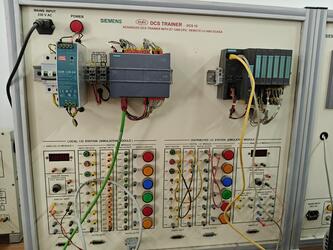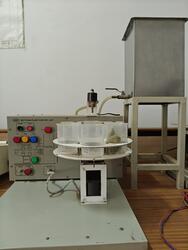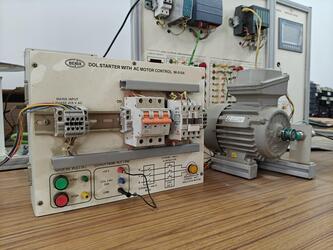DEPARTMENTAL Lab
Basic Electrical Engineering Lab
Introduction:
This lab introduces first-year students to the fundamental concepts of electrical circuits, measurement tools, and basic theorems.
Importance:
- Builds foundational skills in circuit analysis.
- Helps understand voltage, current, resistance, and power.
- Bridges theory with real-world circuit behavior.


Electrical Workshop Lab
Introduction:
This lab provides hands-on experience in basic wiring, soldering, electrical fittings, and troubleshooting of common electrical appliances.
Importance:
- Develops practical skills in home and industrial wiring
- Enhances safety awareness and workmanship
- Prepares students for real-world electrical maintenance


Electrical Measurements & Instrumentation Lab
Introduction:
Focuses on the study of various electrical measuring instruments and transducers used for industrial and laboratory purposes.
Importance:
- Builds proficiency in using voltmeters, ammeters, wattmeters, etc.
- Teaches sensor-based measurements and signal conditioning
- Essential for instrumentation and control system design


Electrical Machine Lab
Introduction:
This lab enables students to study and operate various electrical machines such as transformers, motors, and generators.
Importance:
- Enhances understanding of machine construction and characteristics
- Prepares students for roles in power generation and industrial automation
- Offers insight into energy conversion principles


Power System Lab
Introduction:
Covers experiments related to transmission lines, fault analysis, load flow, and protective devices in electrical power systems.
Importance:
- Builds proficiency in using voltmeters, ammeters, wattmeters, etc.
- Teaches sensor-based measurements and signal conditioning
- Essential for instrumentation and control system design
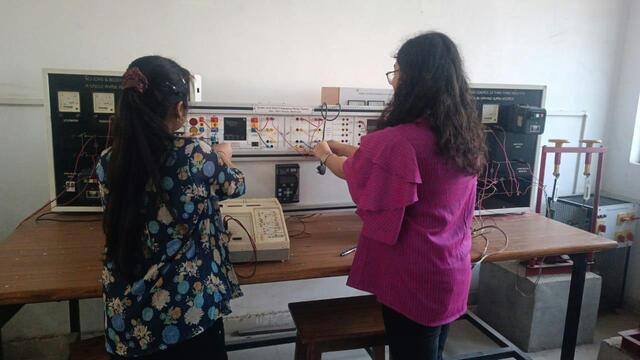
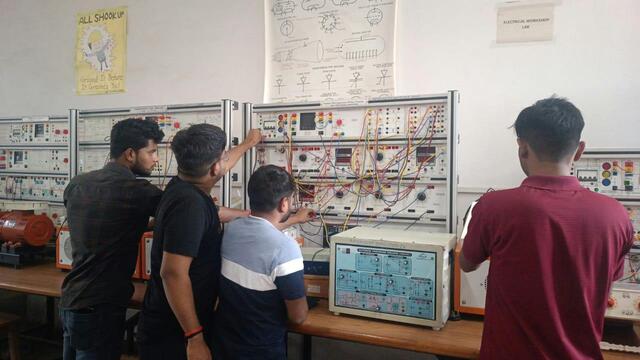
Control System Lab
Introduction:
This lab provides hands-on exposure to control theory using physical systems and MATLAB/Simulink tools.
Importance:
- Helps analyze stability and feedback mechanisms
- Key for robotics, automation, and intelligent control design
- Enables real-time system simulation and prototyping
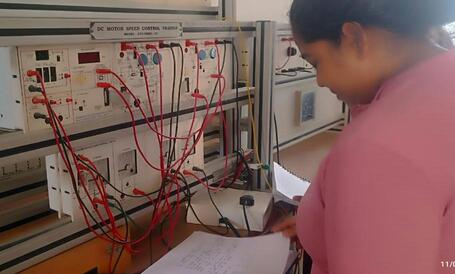
Power Electronics Lab
Introduction:
Focuses on the study of converters, inverters, choppers, and other semiconductor-based power control devices.
Importance:
- Essential for renewable energy systems and electric vehicles
- Offers insight into switching techniques and control strategies
- Forms the backbone of modern power system interfaces
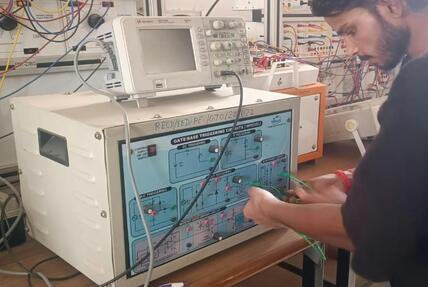
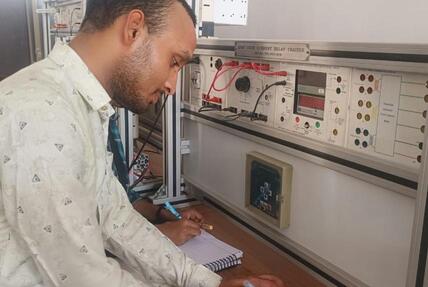
Microprocessor Lab
Introduction:
This lab is dedicated to microprocessor (8085/8086) and microcontroller programming and interfacing
Importance:
- Builds skills in embedded system development
- Essential for IoT, automation, and smart device applications
- Helps students understand low-level hardware-software interaction
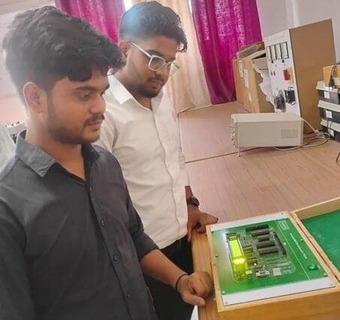
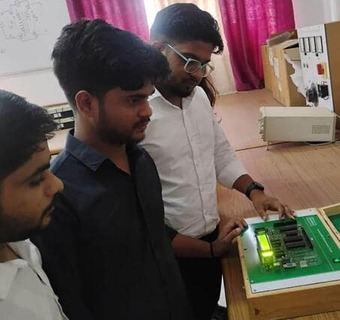
Advanced PLC Lab
Introduction:
The Advanced Programmable Logic Controller (PLC) Lab is equipped with state-of-the-art industrial automation hardware and software to train students in the design, simulation, and implementation of real-time automation systems.
Importance:
- Enables hands-on training in industrial automation and control
- Teaches ladder logic programming and SCADA integration
- Prepares students for Industry 4.0, smart manufacturing, and process control
- Enhances employability in industries such as manufacturing, power plants, and robotics
- Bridges the gap between theoretical control concepts and real-world industrial applications
